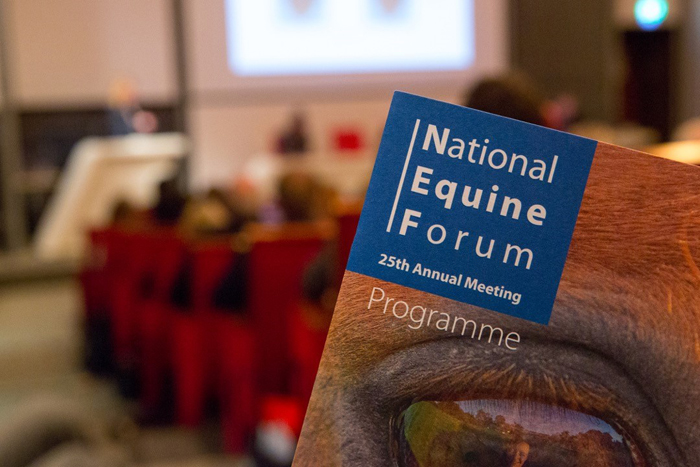The hot topics of Brexit’s impact on the horse industry and the threat of inflated business rates featured at the 25th National Equine Forum (NEF). The prevailing refrain was that the industry should continue to pull together and recognise change as opportunity.
Lord Gardiner, Parliamentary Under Secretary of State for Rural Affairs and Biosecurity, highlighted the importance of the equestrian sector’s role in the UK’s national and rural economies with its contribution of £8 billion a year. He said Defra would be launching a consultation on proposals for the new Domestic Regulation on Equine ID shortly, where views would be invited on the need to microchip older horses and how best to implement the ID new regulation and improve the enforcement regime: “to make it easier for enforcement bodies to take action against the very small minority who deliberately flout the law and who threaten the integrity and reputation of an otherwise first class sector.”
Stewart Everett, Chief Executive of the Equine Register, said the Central Equine Database would be operational by summer 2017. Its primary purpose would be food chain safety and secondarily, disease management and welfare.
Introduction of a free public chip checker would encourage public involvement and promote compliance while an animal ID veterinary app would help with traceability and legal compliance. The digital biometric passport system would logically link Passport Issuing Office, owner and vet. The location of the horse, as well as that of the owner, should be a key requirement for welfare and disease prevention.
Sarah Phillips, Chief Operating Officer at the British Horse Society, spoke on the impact of dramatic increases in business rates. Riding schools and livery yards are being hit with increases well above the regional average. With some rises of more than 350% largely due to disproportionate increases on individual stables, the BHS is campaigning for a reassessment. Otherwise, she said, some riding schools may have no option but to close or may be lost to developers, competition venue hire charges may increase and welfare concerns could arise.
The forum’s panel discussion debated the potential effects that EU exit may have on the horse industry. Roly Owers, Chief Executive of World Horse Welfare, chaired the panel, which comprised Graeme Cooke (Deputy Chief Veterinary Officer for the UK), Simon Cooper (Operations Officer Weatherbys GSB Ltd), Nikki Newcombe (Chair, BETA, and Managing Director of Bliss London) and Clare Salmon (Chief Executive of the British Equestrian Federation).
The consensus was that the UK should play to its strengths: the UK’s Thoroughbred industry is currently Europe’s biggest market; favourable exchange rates bring export advantages and the UK is setting a gold standard with the Central Equine Database. All stakeholder groups from government to horse owners should pull together to support compliance and enforcement.
It was agreed that the Tripartite Agreement, which governs movement of horses between UK, Ireland and France, should be retained and the easy movement of competition horses maintained. The conclusion was that EU exit must be regarded as an opportunity for the equine sector and that the sector needed to work together in speaking to government about its priorities.
Image: Craig Payne Photography


